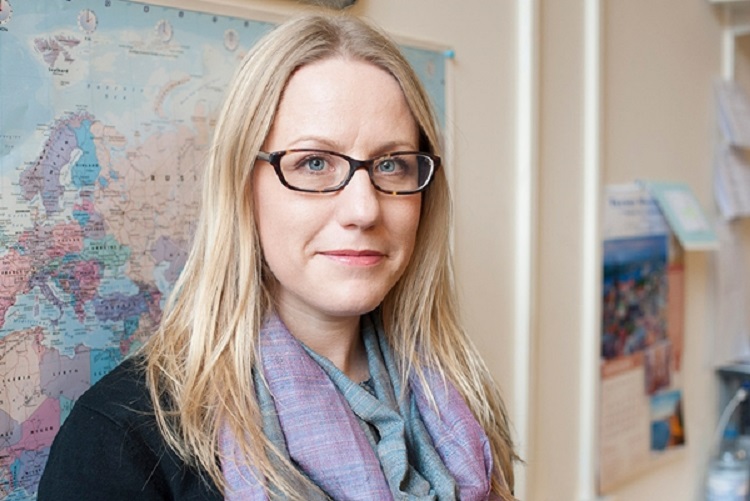Dr Lora Forsythe is Associate Professor in Gender, Inequalities and Food Systems at NRI. In this article for International Women’s Day 2021, she explores the ‘seismic shifts’ that have occurred globally during the past 12 months, and how NRI’s Gender and Social Difference programme is recognising and reflecting on these changes.
 There has been an incredible ‘unsettling’ since International Women’s Day – IWD - 2020. As colleagues and I recently wrote, the pandemic has created seismic shifts from local to global levels, which have exacerbated inequalities and created new fissures (Picchioni et al., 2021). To highlight the significant role of individual women and women’s collectives in managing the ill effects of the pandemic and the need for women’s leadership in recovery and beyond, UN Women have aptly chosen this year’s theme as ‘Women in leadership’.
There has been an incredible ‘unsettling’ since International Women’s Day – IWD - 2020. As colleagues and I recently wrote, the pandemic has created seismic shifts from local to global levels, which have exacerbated inequalities and created new fissures (Picchioni et al., 2021). To highlight the significant role of individual women and women’s collectives in managing the ill effects of the pandemic and the need for women’s leadership in recovery and beyond, UN Women have aptly chosen this year’s theme as ‘Women in leadership’.
Indeed, women’s collectives have played significant roles in social movements such as Black Lives Matter, Me Too, Bharat Bandh Farmer protests in India, and End SARS in Nigeria, which demonstrate both the importance of women’s leadership in social movements and how very intersectional inequalities are.
While we witness these transformational movements, gender and equity efforts among donors and academics in the agriculture and natural resources sector feel outdated, as instrumental and technical approaches to gender equality are still widespread, as opposed to approaches that support processes of empowerment and social change.
My friend and colleague Dr Kalpana Sathish who works with women farmers’ movements in Southern India, expressed her view on this in a blog we co-wrote: “it is extremely difficult to get the support of donors to fund work on women’s representation and redistribution agendas, particularly in the agricultural livelihoods sector… Further, there is a significant gap between academic research and developmental research as most universities are not open to doing joint work with civil society organisations”.
Within this context, NRI’s Gender and Social Difference (GSD) programme is planning to consolidate our learning from decades of research and practice addressing inequality in agriculture, natural resources, environment and human health, and to co-define priorities to address gaps in research, and recognise new contemporary and forecasted challenges.
To achieve this, GSD is planning a number of engagement activities starting this Spring, involving our staff and student community, our research partners and civil society organisations, which we hope will facilitate reflective conversations, prioritisation of a research and practice agenda, and mobilise new and existing collaborations and innovations. We hope that you will be a part of these conversations with us.
To find out more about:
Paper by F. Picchioni , J. Po and L. Forsythe
Blog by Dr Forsythe & Dr Sathish

